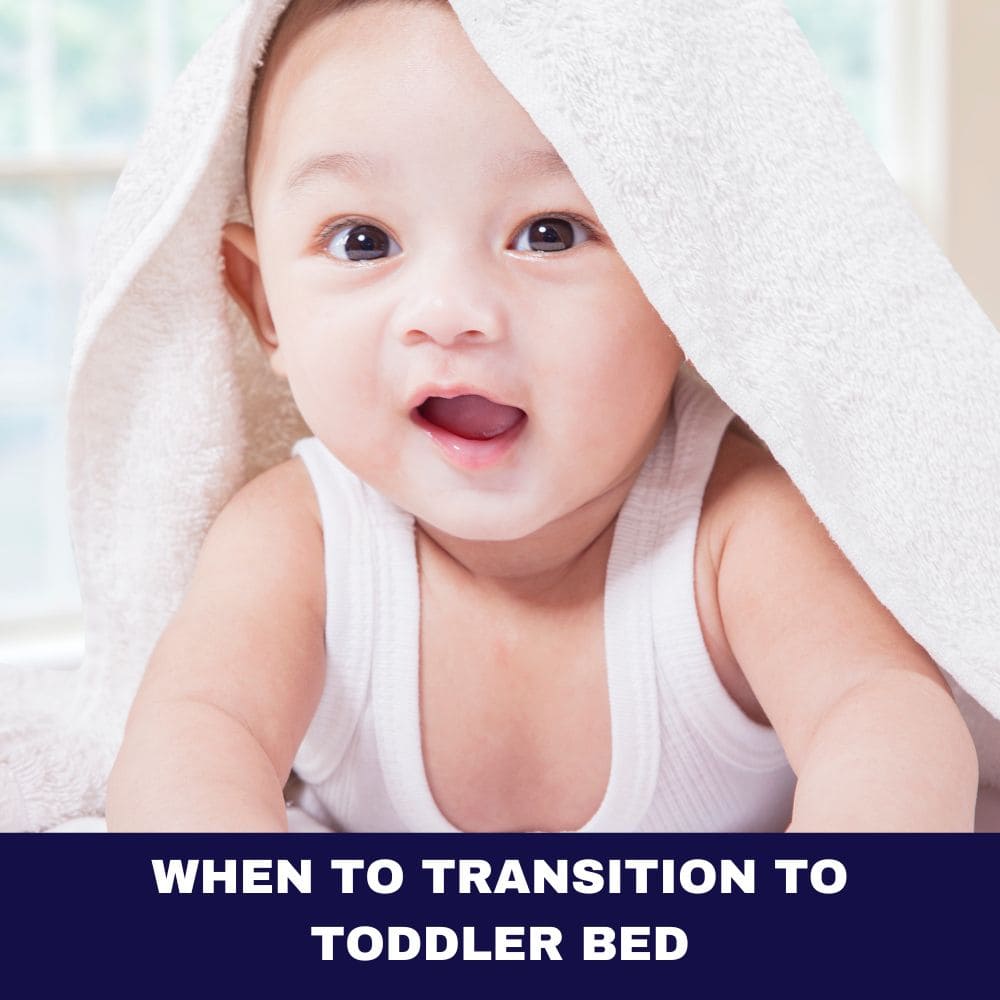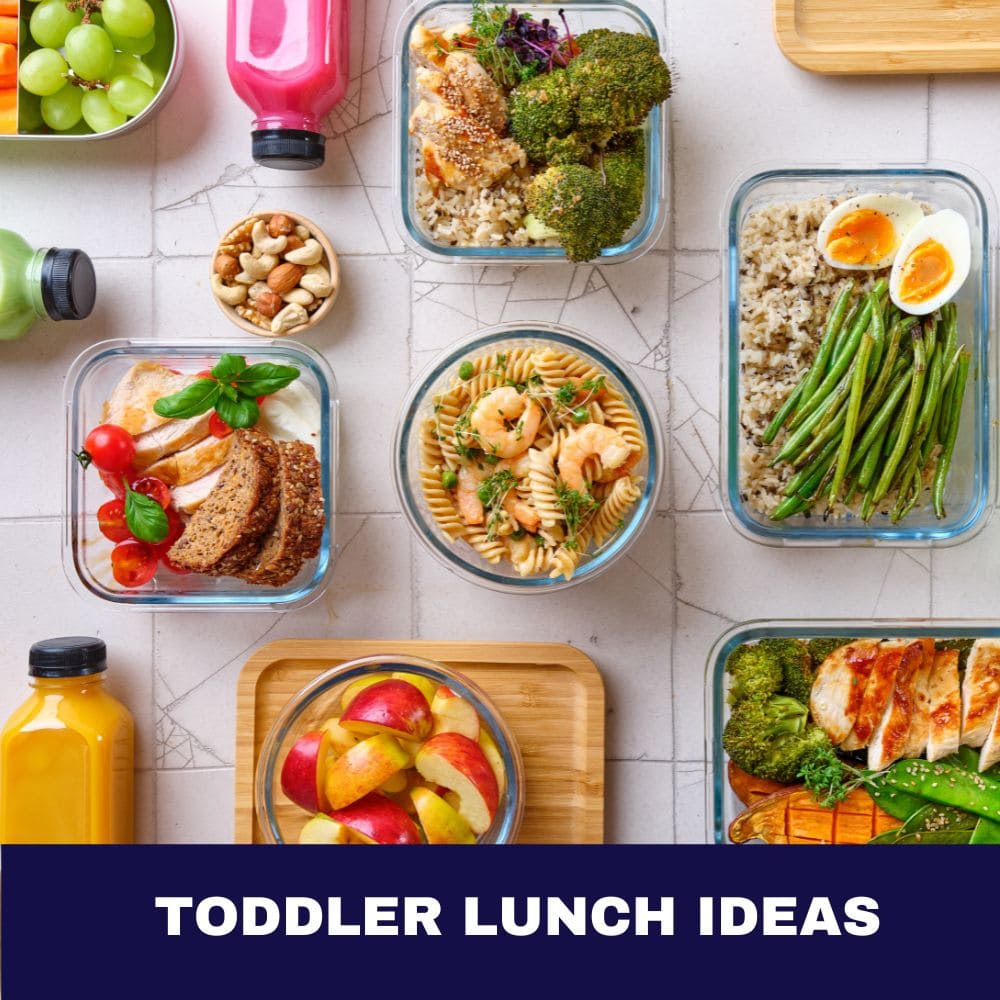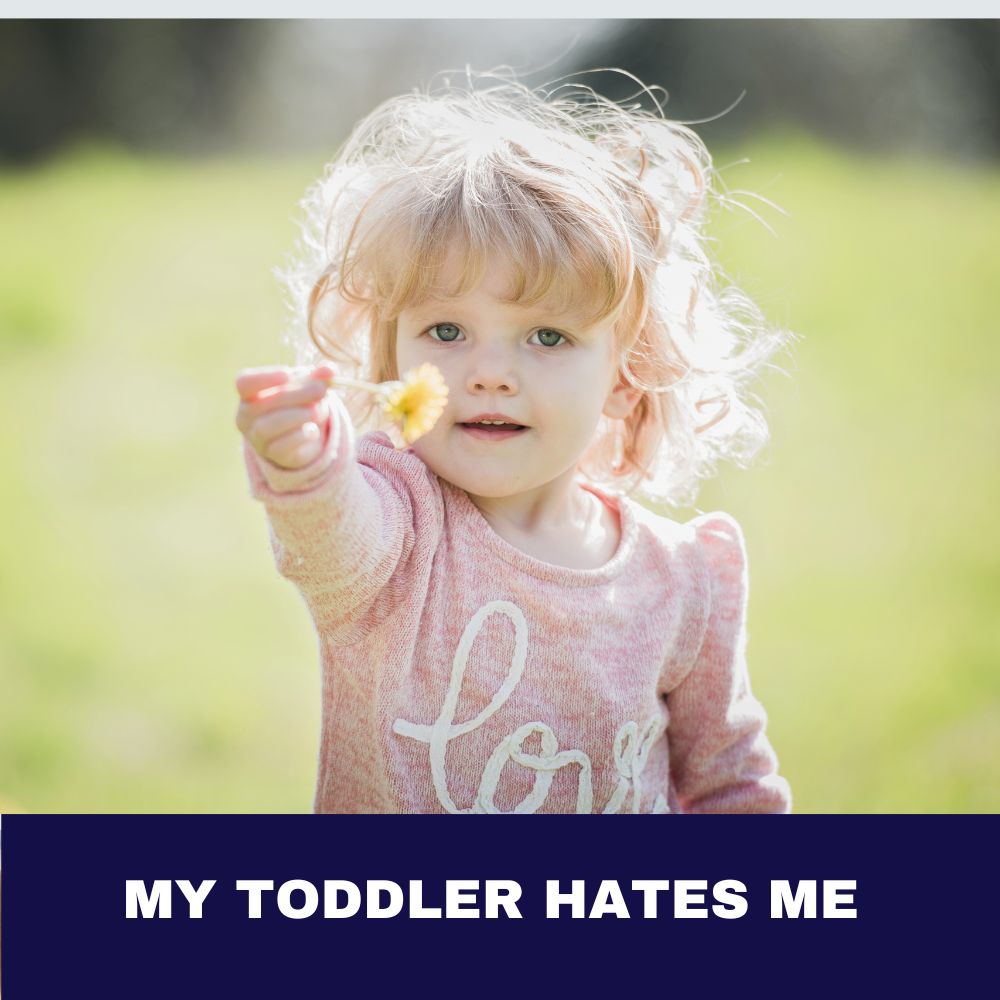Imagine a cozy family gathering, filled with love and laughter, where your little one used to gleefully toddle into grandma’s arms. But now, something has shifted. Your once-affectionate toddler suddenly recoils at the sight of grandma, their face contorted in a mix of fear and disdain. It’s a heartbreaking scenario that leaves parents and grandparents alike feeling bewildered and hurt.
As confusing as it may seem, this abrupt change in behavior is not uncommon among toddlers. During this pivotal stage of development, children often grapple with a complex array of emotions and experiences that can manifest in unexpected ways. Understanding the underlying reasons behind this sudden aversion can help families navigate this challenging phase with patience and empathy.
5 Potential Reasons Your Toddler Suddenly Hates Grandma
1. Separation Anxiety and Fear of Strangers
It’s a paradoxical truth that even familiar figures like grandma can seem like strangers to a toddler during certain developmental stages. As children transition from infancy to toddlerhood, they become increasingly aware of their surroundings and the people in their lives. This heightened awareness can trigger separation anxiety, making them cling tightly to their primary caregivers and reject anyone else, even beloved family members like grandma.
Furthermore, toddlers may perceive grandma as a “stranger” if they don’t spend frequent, consistent time together. Their limited understanding of relationships can cause them to view grandma as an unfamiliar person, leading to fear and resistance.
Next Step Advice: To help alleviate this anxiety, gradually reintroduce grandma through short, positive interactions. Allow your toddler to warm up at their own pace, and avoid forcing interactions that may exacerbate their fear. Consistency and patience are key during this phase.
| Signs of Separation Anxiety | Description |
|---|---|
| Crying or Tantrums | Your toddler may cry inconsolably or have frequent tantrums when separating from their primary caregiver. |
| Clinging Behavior | Your toddler may cling to you or refuse to let go, making it difficult to separate. |
| Regression in Behavior | Your toddler may revert to behaviors they had outgrown, such as bedwetting or thumb-sucking. |
| Physical Symptoms | Some toddlers may experience physical symptoms like headaches, stomach aches, or nausea due to separation anxiety. |
| Refusal to Interact | Your toddler may refuse to interact or engage with others, including grandma, when experiencing separation anxiety. |
2. Sudden Changes in Routine or Environment
Toddlers thrive on routine and familiarity. Their little worlds are built on predictable patterns and familiar surroundings, which provide a sense of security and comfort. When grandma visits or when your toddler is in a new environment, such as grandma’s house, this disruption can be unsettling.
Sudden changes, even seemingly minor ones, can trigger toddlers’ innate need for control and stability. They may react by withdrawing from grandma or lashing out, as a way to assert their autonomy in an unfamiliar situation.

Next Step Advice: To minimize disruptions, try to maintain as much of your toddler’s routine as possible during visits with grandma. Pack familiar toys, books, and snacks to create a sense of familiarity. Additionally, give your toddler time to adjust to new environments and introduce grandma gradually in a calm, low-pressure setting.
3. Sensing Tension or Conflict
Toddlers are incredibly perceptive beings, often picking up on subtle cues and undercurrents that adults may overlook. If there is tension, conflict, or strained relationships within the family dynamic, your toddler may internalize these negative emotions and direct them towards grandma.
Even if the tension is not directly related to grandma, your toddler’s sensitive nature may cause them to associate their negative feelings with her presence. This can manifest as resistance, tantrums, or outright hostility towards grandma, leaving both parties confused and hurt.
Next Step Advice: It’s essential to address any underlying conflicts or tensions within the family, as toddlers are highly attuned to these emotional undercurrents. Open communication, conflict resolution, and creating a harmonious environment can help alleviate your toddler’s negative associations and restore their bond with grandma.
4. Asserting Independence and Autonomy
As toddlers grow and develop, they begin to assert their independence and autonomy in various ways. This natural developmental phase can sometimes lead to defiant or hostile behavior towards authority figures, including grandparents.
Your toddler may perceive grandma’s affection, guidance, or attempts at discipline as encroachments on their newfound sense of autonomy. This clash of wills can result in sudden outbursts of negativity or rejection, as your little one seeks to establish their boundaries and individuality.
Next Step Advice: While it’s important to respect your toddler’s need for independence, it’s equally crucial to set appropriate limits and boundaries. Encourage grandma to allow your toddler to make age-appropriate choices and decisions, while still maintaining a consistent and loving presence. Positive reinforcement and redirecting negative behaviors can help strike a balance between autonomy and respect.
5. Underlying Health or Developmental Issues
In some cases, a toddler’s sudden aversion to grandma may be a symptom of an underlying health or developmental issue. Conditions such as autism spectrum disorder, sensory processing disorders, or even physical discomforts like ear infections or digestive issues can contribute to behavioral changes and difficulties with social interactions.
If your toddler’s negative behavior towards grandma seems excessive or persists despite your best efforts, it’s essential to consult with a pediatrician or child development specialist. Early intervention and proper diagnosis can help address any underlying issues and provide the necessary support and resources for your family.
Next Step Advice: Be attentive to your toddler’s overall behavior, development, and physical well-being. Keep track of any concerning patterns or changes, and don’t hesitate to seek professional guidance if you suspect an underlying condition. With the right support and interventions, many developmental challenges can be effectively managed, allowing your toddler to build a positive relationship with grandma.

Strategies to Remedy the Situation and Rebuild the Relationship
What to Do If Your Toddler Suddenly Hates Grandma
- Be Patient and Empathize with Your Toddler: Understand that this phase is likely temporary and a natural part of your toddler’s development. Respond with patience, empathy, and understanding, rather than anger or frustration.
- Open Communication with Grandma: Discuss the situation openly with grandma, acknowledging her hurt feelings while also reassuring her that this phase will pass. Encourage her to maintain a positive attitude and continue efforts to bond with your toddler.
- Gradually Reintroduce Grandma: Rather than forcing interactions, take small steps to reintroduce grandma in a positive and non-threatening way. Start with brief visits, engaging in activities your toddler enjoys, and allowing your child to warm up at their own pace.
- Discover Common Interests Between Toddler and Grandma: Identify shared interests or activities that can help create positive associations and bonding experiences between your toddler and grandma. Reading books, playing games, or engaging in crafts together can foster a sense of connection.
- Foster a Positive Environment: Create a warm, welcoming atmosphere when grandma visits, free from tension or conflicts. Encourage grandma to be patient, use positive reinforcement, and avoid power struggles or discipline during this delicate phase.
- Seek Professional Help, if Required: If the situation persists or escalates, don’t hesitate to seek guidance from a child psychologist or counselor. They can provide valuable insights and strategies tailored to your family’s unique circumstances.
- Encourage Positive Associations: Help your toddler associate grandma with positive experiences, such as special treats, outings, or gifts. This can gradually shift their perception and create a more positive emotional connection.
- Incorporate Grandma into Daily Routines: If possible, find ways to incorporate grandma into your toddler’s daily routine, such as having her participate in mealtime, bedtime stories, or playtime. Familiarity and consistency can help your toddler feel more comfortable and accepting of her presence.
- Maintain Realistic Expectations: Remember that this phase is temporary, and progress may be gradual. Celebrate small victories and don’t get discouraged by setbacks. With patience and consistent efforts, the bond between your toddler and grandma can be restored.
- Cultivate Quality One-on-One Time: Encourage quality one-on-one time between your toddler and grandma, free from distractions or other family members. This focused attention can help strengthen their connection and create positive memories.
- Exemplify Positive Behavior Towards Your Toddler: As parents, model respect, kindness, and positive interactions with your toddler. Children often mirror the behavior they observe, and seeing a healthy, loving relationship between you and your child can influence their perception of grandma.
- Highlight Grandma’s Affection: Remind your toddler of grandma’s love and affection, even when they are resistant. Share stories and memories that highlight the special bond between them, and reinforce the idea that grandma’s feelings for them remain unchanged.
- Address Underlying Issues: If you suspect that your toddler’s behavior towards grandma is linked to an underlying issue, such as family tensions, developmental challenges, or health concerns, address these root causes promptly and sensitively. Seeking professional support and guidance can help resolve these issues and create a more positive environment for your child.
How to Calm a Fussy Grandchild
For grandparents, dealing with a fussy or resistant grandchild can be a heartbreaking experience. However, there are several strategies that can help soothe and bond with a grandchild during these challenging moments:
- Use Calming Techniques: Try singing lullabies, reading stories, or engaging in gentle rocking or swaying motions to create a sense of comfort and security.
- Engage in Soothing Activities: Offer quiet activities like coloring, playdough, or puzzles that can help distract and calm a fussy grandchild.
- Create a Comfortable Environment: Ensure the surroundings are peaceful, with minimal noise and distractions. Dim lighting and soft music can also contribute to a calming atmosphere.
- Be Patient and Understanding: Recognize that a grandchild’s fussiness is not a personal rejection but rather a manifestation of their developmental stage or emotions. Respond with patience and empathy.
- Use Positive Reinforcement: Praise and encourage desired behaviors, even small ones, to help build a positive association with your presence.
Next Step Advice: If a grandchild remains inconsolable or displays extreme distress, it’s best to step back and give them space. Respect their need for familiarity and comfort from their primary caregivers. Consistency and patience are key; with time and positive experiences, the bond between grandparent and grandchild can strengthen.
Common Triggers
There are various triggers that can contribute to a baby or toddler’s negative reactions towards grandparents. Some common culprits include:
- Loud Noises: Grandparents may inadvertently raise their voices or make sudden loud noises, which can startle and distress young children.
- Unfamiliar Smells: The scent of grandma’s perfume, cologne, or even household cleaning products can be overwhelming for a child’s sensitive sense of smell, leading to discomfort or fear.
- Overwhelming Affection: While well-intentioned, grandparents may sometimes smother young children with excessive hugs, kisses, or physical affection, which can feel invasive or overwhelming.
- New Environments: Visiting grandma’s house or being in an unfamiliar setting can be unsettling for children who thrive on routine and familiarity.
- Separation from Parents: Even a temporary separation from parents can trigger separation anxiety in young children, making them resistant to interactions with grandparents.
Next Step Advice: By being aware of these common triggers, grandparents can take steps to minimize them and create a more positive environment for their grandchildren. This may involve adjusting their volume, being mindful of strong scents, respecting personal space, introducing new environments gradually, and reassuring children about their parents’ return.
Developmental Basis for a Baby’s Reactions
A baby’s reactions and behaviors towards grandparents are rooted in various developmental processes and milestones. Understanding these developmental factors can provide valuable insights into the reasons behind a baby’s responses:
- Stranger Anxiety: Around 6-8 months of age, babies begin to develop a fear of strangers, which is a natural survival mechanism. This can manifest as crying, clinging, or hiding from unfamiliar people, including grandparents who don’t have frequent interactions with the baby.
- Separation Anxiety: Between 9-18 months, babies may experience separation anxiety, which can lead to distress when separated from their primary caregivers (parents). This anxiety can extend to grandparents, even those they have previously bonded with.
- Development of Attachment and Trust: The first year of life is crucial for developing secure attachments and trust with caregivers. If a baby has limited exposure to grandparents during this formative period, they may not readily accept or bond with them.
- Sensory Development: Babies’ senses, including sight, sound, and smell, are highly attuned and can be easily overwhelmed. Grandparents’ unfamiliar appearances, voices, or scents may trigger a negative reaction in a baby.
Next Step Advice: By understanding these developmental processes, grandparents can adjust their expectations and approach accordingly. Frequent, positive interactions from an early age can help mitigate stranger anxiety and facilitate bonding. Additionally, respecting a baby’s need for familiarity and gradual introductions can help build trust and attachment over time.

Strategies for Grandparents to Bond with Their Grandchildren
Building a strong bond between grandparents and grandchildren is a precious gift that enriches the lives of both generations. Here are some suggestions and activities to help foster this special connection:
- Age-Appropriate Play: Engage in play activities tailored to your grandchild’s age and interests. For younger children, this could involve reading books, singing songs, or playing with simple toys. As they grow older, explore their interests in sports, arts, or games.
- Storytelling: Share stories from your own childhood or family history, creating a sense of connection and tradition. Children love hearing tales of their parents’ or grandparents’ younger years.
- Create Special Traditions: Establish unique traditions or rituals that are specific to your relationship with your grandchild. This could be a special outing, a favorite snack or meal, or a shared activity that becomes a cherished memory.
- Embrace Their Interests: Show genuine interest in your grandchild’s hobbies, passions, and accomplishments. Attend their events, ask questions, and celebrate their achievements, no matter how small.
- Quality Time: Make the most of your time together by being fully present and engaged. Put away distractions like phones or electronics and focus on creating meaningful moments.
- Offer Wisdom and Guidance: Share your life experiences, values, and lessons learned with your grandchildren. Your wisdom and perspective can provide valuable guidance as they navigate their own journeys.
Next Step Advice: Remember that building a strong bond takes time, patience, and consistency. Embrace each moment with your grandchild, and allow the relationship to unfold naturally. With love, understanding, and a commitment to creating positive experiences, the bond between grandparent and grandchild can flourish into a cherished and lifelong connection.
| Age Group | Bonding Activities |
|---|---|
| Infants (0-1 year) | Singing lullabies, reading simple books, gentle rocking, playing peek-a-boo. |
| Toddlers (1-3 years) | Arts and crafts, simple puzzles, storytelling, outdoor play, baking together. |
| Preschoolers (3-5 years) | Imaginative play, board games, gardening, nature walks, cooking together. |
| School-age (6-12 years) | Sports activities, science experiments, learning a new skill together, family game nights. |
| Teenagers (13-18 years) | Engaging in their hobbies or interests, having meaningful conversations, attending their events or performances. |
Are Maternal Grandparents Closer to Grandkids?
It’s a common perception that maternal grandparents often have a closer bond with their grandchildren compared to paternal grandparents. While this may hold true in some cases, it’s important to recognize that every family dynamic is unique, and there are various factors that can influence the strength of these relationships.
Some potential reasons why maternal grandparents may seem closer to their grandchildren include:
- Cultural and Social Norms: In many cultures and societies, there is a stronger emphasis on the maternal lineage, which can lead to more frequent interactions and a closer bond between maternal grandparents and their grandchildren.
- Caregiving Roles: Historically, maternal grandmothers have often played a more significant role in caregiving and child-rearing, fostering a deeper connection with their grandchildren from an early age.
- Emotional Bonds: The bond between a mother and her child can extend to the maternal grandmother, creating a strong emotional connection that may facilitate a closer relationship with the grandchild.
However, it’s essential to note that these are generalizations, and the quality of the relationship between grandparents and grandchildren is influenced by various factors, including:
- Proximity and frequency of interactions
- Individual personalities and efforts to connect
- Family dynamics and relationships
- The involvement and support of parents
Next Step Advice: While acknowledging cultural and societal norms, it’s crucial not to make assumptions about the strength of bonds between grandparents and grandchildren based solely on maternal or paternal lineage. Encourage all grandparents to actively nurture their relationships with their grandchildren, regardless of their familial connection.
Paternal grandparents can take proactive steps to build strong bonds, such as:
- Making frequent visits or phone/video calls
- Participating in child care responsibilities
- Attending important events and milestones
- Creating special traditions or shared interests
- Offering unconditional love and support
Ultimately, the quality of the relationship depends on the effort, time, and love invested by all parties involved. By fostering an inclusive and supportive family dynamic, all grandparents can have the opportunity to forge deep and meaningful connections with their grandchildren.
Approaches for Long-Distance Grandparenting
In today’s increasingly mobile world, many grandparents find themselves living far away from their grandchildren. While physical distance can present challenges, it doesn’t have to be a barrier to maintaining strong and loving relationships. Here are some approaches to effective long-distance grandparenting:
- Leverage Technology: Utilize video calling platforms like FaceTime, Skype, or Zoom to stay connected with your grandchildren. Schedule regular virtual playdates, storytime sessions, or even shared meals to maintain a sense of presence in their lives.
- Send Care Packages: Surprise your grandchildren with care packages filled with special treats, crafts, or small gifts that remind them of your love and affection. Include personalized notes, drawings, or photos to create a tangible connection.
- Plan Special Visits: While visits may be less frequent, make them count by planning special activities, outings, or adventures that create lasting memories. Involve your grandchildren in the planning process to build anticipation and excitement.
- Establish Traditions: Develop unique long-distance traditions, such as a monthly book club where you read the same book and discuss it over video call, or a shared hobby like birdwatching or stamp collecting that you can bond over despite the distance.
- Share Your Life Experiences: Write letters, emails, or record voice messages sharing stories from your own childhood, life lessons, or family history. This can help your grandchildren feel connected to their roots and gain a deeper appreciation for your wisdom and experiences.
Next Step Advice: While long-distance grandparenting requires extra effort and creativity, the rewards of maintaining a strong bond with your grandchildren are invaluable. Embrace technology, cherish the moments you have together, and find ways to bridge the physical distance with love, patience, and a commitment to staying connected.
| Activity | Description |
|---|---|
| Virtual Story Time | Schedule regular video calls where grandparents can read books or tell stories to their grandchildren. |
| Shared Hobby | Start a shared hobby like stamp collecting, birdwatching, or gardening, and share updates, photos, and progress. |
| Grandparent Journals | Create journals or scrapbooks where grandparents can share stories, photos, and life lessons with their grandchildren. |
| Surprise Packages | Send care packages with small gifts, treats, or crafts to surprise and delight your grandchildren. |
| Online Games | Play online games or puzzles together during video calls for interactive bonding experiences. |
| Milestone Celebrations | Plan special virtual celebrations for birthdays, graduations, or other important milestones in your grandchild’s life. |
How to Help an Anxious Child
For grandparents, witnessing an anxious or fearful grandchild can be a challenging and heartbreaking experience. However, there are several strategies that can help soothe and support an anxious child:
- Validate Their Feelings: Acknowledge and validate the child’s emotions, letting them know that it’s okay to feel anxious or scared. This can help them feel understood and less alone in their experience.
- Use Calming Strategies: Engage in deep breathing exercises, progressive muscle relaxation, or visualization techniques to help the child regulate their emotions and find a sense of calm.
- Create a Safe Space: Provide a quiet, comfortable space where the child can retreat and feel secure when feeling overwhelmed. This could be a cozy corner with soft blankets, stuffed animals, or calming sensory items.
- Offer Reassurance: Gently remind the child that they are safe and loved, and that their feelings of anxiety or fear are temporary. Reassure them that you are there to support them through this experience.
- Distract and Redirect: When appropriate, try to redirect the child’s attention to a calming activity, such as reading a book, listening to soothing music, or engaging in a creative project. This can help shift their focus away from the source of their anxiety.
- Seek Professional Support: If a child’s anxiety persists or escalates, don’t hesitate to seek guidance from a mental health professional who can provide tailored strategies and support.
Next Step Advice: Remember that every child is unique, and their experience of anxiety may manifest differently. Be patient, understanding, and willing to adapt your approach to best meet their needs. By creating a safe and supportive environment, grandparents can play a crucial role in helping an anxious child feel loved, secure, and capable of managing their emotions.
Conclusion
While a toddler’s sudden aversion to grandma can be a confusing and distressing experience, understanding the underlying reasons and embracing effective strategies can help families navigate this phase with grace and resilience.
Throughout this journey, it’s crucial to remember that this behavior is often temporary and rooted in the natural developmental processes of childhood. By practicing patience, empathy, and open communication, parents and grandparents can work together to create an environment that fosters positive associations and rebuilds the cherished bond between toddler and grandma.
Whether it’s addressing separation anxiety, navigating changes in routine, sensing conflicts, respecting a toddler’s need for independence, or seeking professional support for underlying health or developmental issues, a multifaceted approach tailored to your family’s unique circumstances can pave the way for a stronger, more resilient relationship.
Grandparents, too, play a vital role in this process. By embracing calming techniques, creating comfortable environments, and understanding common triggers, they can help soothe and bond with their grandchildren during challenging moments. Additionally, nurturing the grandparent-grandchild connection through age-appropriate play, storytelling, and special traditions can create lasting memories and strengthen the foundation of this precious relationship.
Remember, the journey is not solely about your toddler; it’s also about supporting and nurturing the cherished bond between grandparent and grandchild. With open communication, a commitment to creating positive experiences, and a deep well of love and understanding, families can navigate this phase and emerge with an even stronger, more resilient connection.
Embrace the challenges as opportunities for growth, self-reflection, and deepening your connections with one another. And above all, never lose sight of the immense love and joy that grandparents and grandchildren can bring into each other’s lives, even during the most trying times. With patience, perseverance, and an unwavering commitment to fostering this special bond, the rewards will be immeasurable for all involved.
FAQ – Toddler Suddenly Hates Grandma
Why do toddlers sometimes appear to hate their grandparents out of the blue?
There can be several reasons why a toddler may suddenly display aversion or even hatred towards their grandparents. Some common causes include separation anxiety, fear of strangers, disruptions to routine, sensing tension or conflict within the family, or the toddler’s natural desire to assert independence and autonomy. In some cases, it could also be a sign of an underlying health or developmental issue. It’s essential to understand that this behavior is often temporary and rooted in the child’s developmental stage.
How can parents help their toddler overcome this phase and rebuild the relationship with grandma?
There are several strategies parents can employ to help their toddler overcome this phase and rebuild the bond with grandma. These include:
- Being patient and empathizing with the toddler’s emotions
- Gradually reintroducing grandma in a positive, non-threatening way
- Encouraging positive associations and creating special traditions with grandma
- Maintaining open communication with grandma and addressing any underlying tensions
- Seeking professional help if the situation persists or escalates
The key is to approach the situation with patience, understanding, and a commitment to creating positive experiences that will foster a healthy relationship between the toddler and grandma.
What role can grandparents play in resolving this issue?
Grandparents can play a crucial role in resolving this issue by taking steps to create a positive and welcoming environment for their grandchild. This includes:
- Using calming techniques and engaging in soothing activities
- Being patient and understanding, avoiding power struggles or discipline
- Discovering shared interests and creating special bonding activities
- Respecting the toddler’s need for space and familiarity
- Seeking guidance from the parents or professionals if needed
By adapting their approach and fostering a nurturing environment, grandparents can help their grandchild feel more comfortable and open to rebuilding their relationship.
Is it common for toddlers to have a stronger bond with maternal grandparents?
While it is a common perception that maternal grandparents often have a closer bond with their grandchildren, this is not a universal truth. The strength of the relationship between grandparents and grandchildren can be influenced by various factors, such as proximity, frequency of interactions, individual personalities, and the overall family dynamics. It’s important not to make assumptions based solely on maternal or paternal lineage. With effort, time, and love invested by all parties, both maternal and paternal grandparents can forge deep and meaningful connections with their grandchildren.
How can long-distance grandparents maintain a strong bond with their grandchildren?
Long-distance grandparenting can be challenging, but there are several approaches that can help maintain a strong bond with grandchildren:
- Leveraging technology for video calls, virtual playdates, and shared activities
- Sending care packages and surprise gifts to create tangible connections
- Planning special visits and creating unique long-distance traditions
- Sharing life experiences, stories, and family history through letters or recordings
- Involving grandchildren in the planning process to build anticipation and excitement
By embracing technology, cherishing the moments they have together, and finding creative ways to bridge the physical distance, long-distance grandparents can ensure their grandchildren feel loved and connected.












